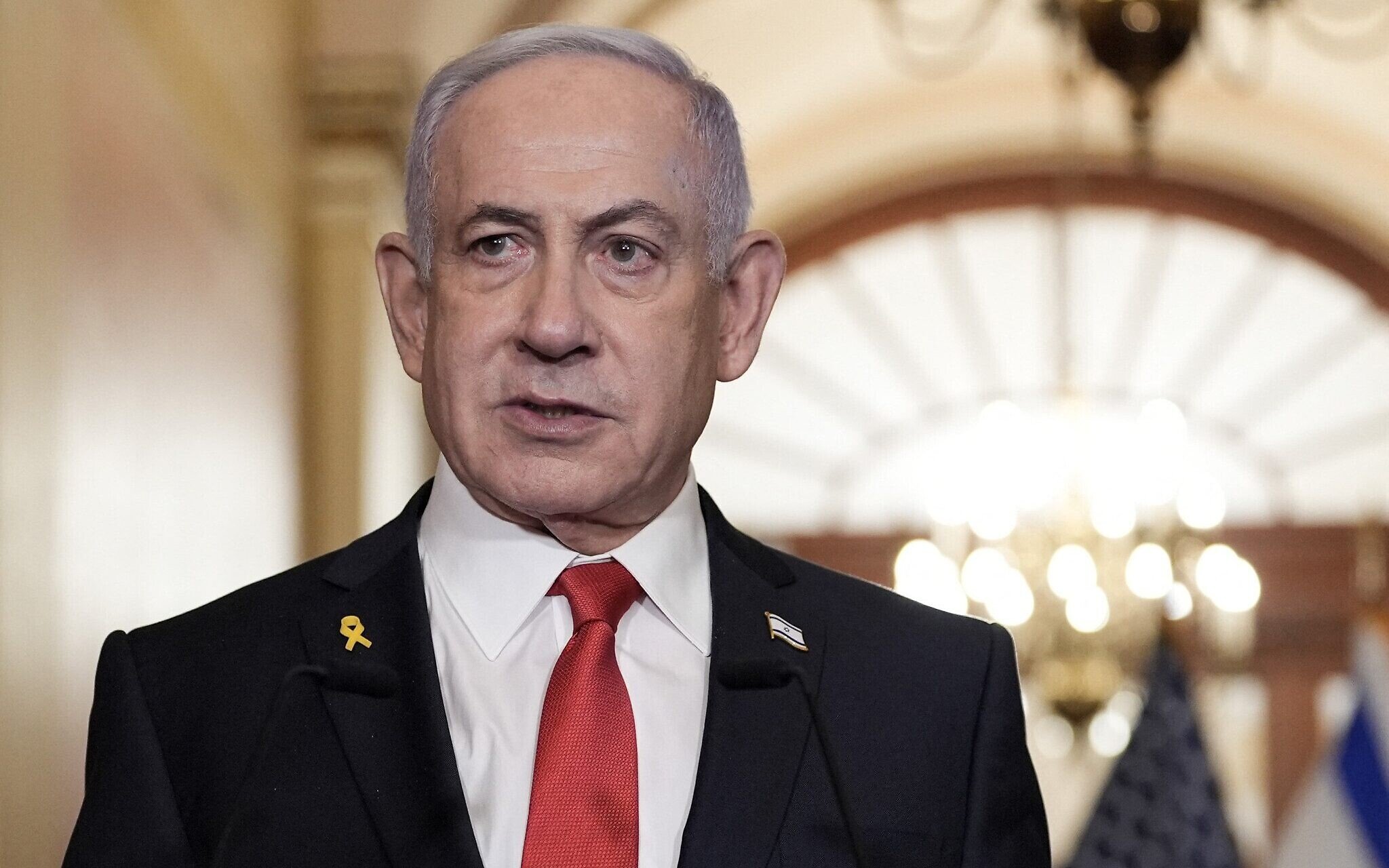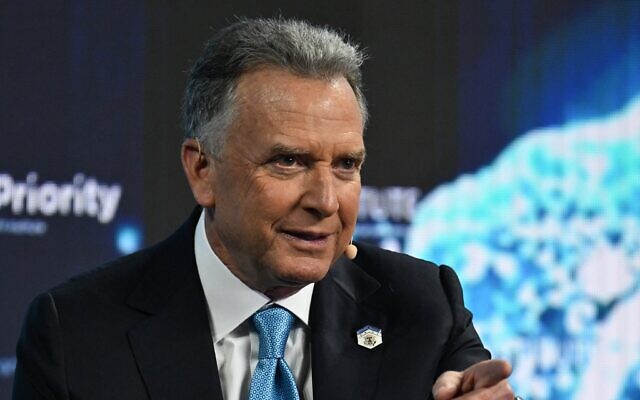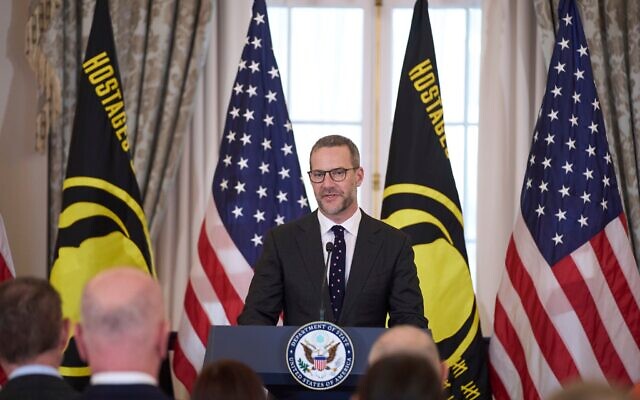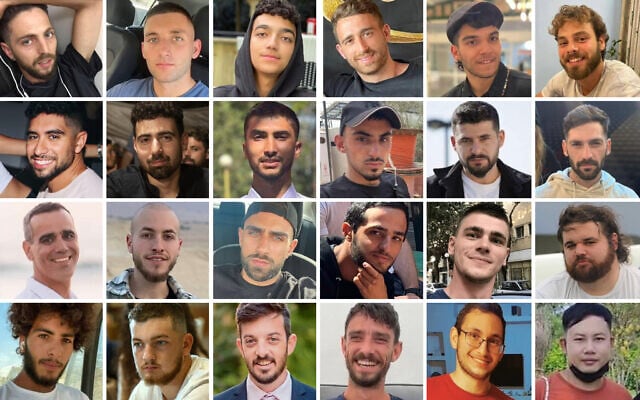



Prime Minister Benjamin Netanyahu was convening top aides and security chiefs on Saturday evening for a briefing by Israel’s hostage negotiation team on the state of the talks.
The team returned from Doha on Friday, and Netanyahu has yet to decide on a way forward.
The Doha talks are said to be based on a “bridge proposal� by Steve Witkoff, the White House Middle East envoy, to extend the ceasefire’s first phase until April 19 and continue the exchange of living Israeli hostages for Palestinian prisoners.
Channel 12 reported Saturday night that negotiations could be nearing a breakdown, with the sides unable to agree on the terms of continuing the ceasefire.
Hamas on Friday offered to release an Israeli-US hostage and return the bodies of four others in return for extending the truce. Both Israel and the US rejected the proposal as insufficient.
Israel is said to be demanding the release of at least five living hostages to extend the truce.
Jerusalem officials have warned the IDF could return to an intensive military campaign in Gaza if no deal is reached with Hamas soon.
The deal between Israel and Hamas took effect on January 19, with negotiations on the second stage slated to begin on the 16th day of the first stage. However, for almost a month, Israel refused to hold negotiations on the terms of phase two, which would require Israel to withdraw fully from Gaza and agree to permanently end the war — a red line for the government’s right-wing flank.
Earlier Saturday, a Hamas spokesman said that “the ball is in Israel’s courtâ€� after the terror group’s offer.
“We want to solidify the ceasefire agreement and force [Israel] to implement its terms,� Abdul Latif al-Qanou told AFP, accusing Israel of “delaying� its enforcement.
He pointed to the ongoing blockage of humanitarian aid entering Gaza since March 2. Israel stopped aid then, citing Hamas’s refusal to accept a proposal to extend phase one of the ceasefire, as it insisted on moving to phase two.
Following the offer on Friday, Israel said the Palestinian terrorists had “not budged a millimeter� in response to a proposal from US President Donald Trump’s Middle East envoy that Israel has accepted.
US envoy Witkoff also rejected the Hamas offer, indicating it was disingenuous: Rather than accepting his own proposal, Witkoff said in a statement, “unfortunately, Hamas has chosen to respond by publicly claiming flexibility while privately making demands that are entirely impractical without a permanent ceasefire.�
“Through our Qatari and Egyptian partners,” he explained, “Hamas was told in no uncertain terms that this ‘bridge’ would have to be implemented soon — and that dual US-Israeli citizen Edan Alexander would have to be released immediately.”
With its response, “Hamas is making a very bad bet that time is on its side. It is not. Hamas is well aware of the deadline, and should know that we will respond accordingly if that deadline passes,” the top Trump aide warned without elaborating on what that deadline was.
Meanwhile, US Secretary of State Marco Rubio on Friday denounced Hamas as “savages” and said they should be treated as such.
A senior Arab diplomat told The Times of Israel that Hamas’s proposal on Friday morning was based on what the Palestinian terrorist organization discussed with US hostage envoy Adam Boehler on March 4. At the time, Hamas held off on agreeing to the proposal.
Israel was furious about being left in the dark on the direct US-Hamas talks, and leaked their existence later that day, a US official told The Times of Israel earlier this week. On Friday, Israel slammed Hamas’s delayed agreement to that proposal as a ploy to avoid committing to Witkoff’s newer proposal to extend the ceasefire’s first phase, which expired March 2, until April 19.
The rare statement issued by Witkoff on Friday indicated that Hamas’s response to Boehler may have come too late for Washington, which was now taking a harder line on Hamas.
Witkoff went public with many of the key terms of his own “bridge proposal,” submitted to negotiators in Doha on Wednesday.
Accepting Israel’s stance, Witkoff’s “bridge proposal” would extend the ceasefire deal’s first phase and see Hamas release living hostages in exchange for Palestinian prisoners. He did not specify how many living hostages or Palestinian security prisoners.
Numerous reports have suggested that the Witkoff proposal requires Hamas to release five living hostages and the remains of 10 others, but this has not been confirmed. Israel has reportedly pushed for more living hostages. There are believed to be, at most, 24 living hostages in Gaza, as well as 35 confirmed by Israel to be dead.
Witkoff revealed that he and National Security Council Mideast director Eric Trager arrived in Doha on Wednesday to present the “bridge proposal” to extend the ceasefire deal’s first phase until after Ramadan and Passover. The Muslim holy month ends on March 29, while the weeklong Jewish holiday ends on April 19.
The “phase one extension” would give Israel and Hamas more time to negotiate a permanent ceasefire, said Witkoff. “The US would work toward a durable solution to this intractable conflict during the extended ceasefire period,” he said.
The phase one extension offered by Witkoff would also see the resumption of humanitarian aid delivery into Gaza, which Israel halted at the original end date of the first phase about two weeks ago, with the subsequent backing of the Trump administration.
The first phase of the ceasefire saw Hamas release 33 women, children, civilian men, and those deemed “humanitarian cases” in exchange for some 1,900 Palestinian prisoners, including over 270 serving life terms in connection with the murders of dozens of Israelis.
The second phase would see Hamas release 24 hostages still believed to be alive, including Alexander. All of them are young men abducted on October 7, 2023, when thousands of Hamas-led terrorists stormed southern Israel to kill some 1,200 people and take 251 hostages, sparking the war in Gaza.
Jacob Magid contributed to this report.



